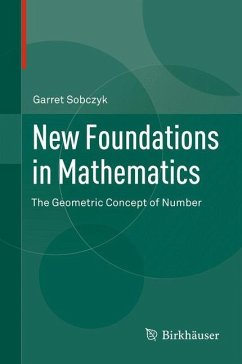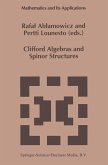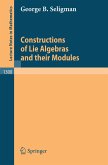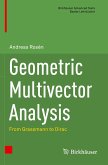The first book of its kind, New Foundations in Mathematics: The Geometric Concept of Number uses geometric algebra to present an innovative approach to elementary and advanced mathematics. Geometric algebra offers a simple and robust means of expressing a wide range of ideas in mathematics, physics, and engineering. In particular, geometric algebra extends the real number system to include the concept of direction, which underpins much of modern mathematics and physics. Much of the material presented has been developed from undergraduate courses taught by the author over the years in linear algebra, theory of numbers, advanced calculus and vector calculus, numerical analysis, modern abstract algebra, and differential geometry. The principal aim of this book is to present these ideas in a freshly coherent and accessible manner.
New Foundations in Mathematics will be of interest to undergraduate and graduate students of mathematics and physics who are looking for a unified treatment of many important geometric ideas arising in these subjects at all levels. The material can also serve as a supplemental textbook in some or all of the areas mentioned above and as a reference book for professionals who apply mathematics to engineering and computational areas of mathematics and physics.
New Foundations in Mathematics will be of interest to undergraduate and graduate students of mathematics and physics who are looking for a unified treatment of many important geometric ideas arising in these subjects at all levels. The material can also serve as a supplemental textbook in some or all of the areas mentioned above and as a reference book for professionals who apply mathematics to engineering and computational areas of mathematics and physics.
From the book reviews:
"This book is suitable for graduate students and researchers interested in learning how W. K. Clifford's geometric algebras provide a common, geometrically well-interpreted algebraic language for linear algebra, vector calculus, linear operators, forms, relativity, symmetry, differential geometry, non-Euclidean and projective geometry as well as Lie algebras. Every section is followed by an appropriate set of exercises, deepening and consolidating the section's content." (Eckhard M. S. Hitzer, Mathematical Reviews, July, 2014)
"This book is suitable for graduate students and researchers interested in learning how W. K. Clifford's geometric algebras provide a common, geometrically well-interpreted algebraic language for linear algebra, vector calculus, linear operators, forms, relativity, symmetry, differential geometry, non-Euclidean and projective geometry as well as Lie algebras. Every section is followed by an appropriate set of exercises, deepening and consolidating the section's content." (Eckhard M. S. Hitzer, Mathematical Reviews, July, 2014)









